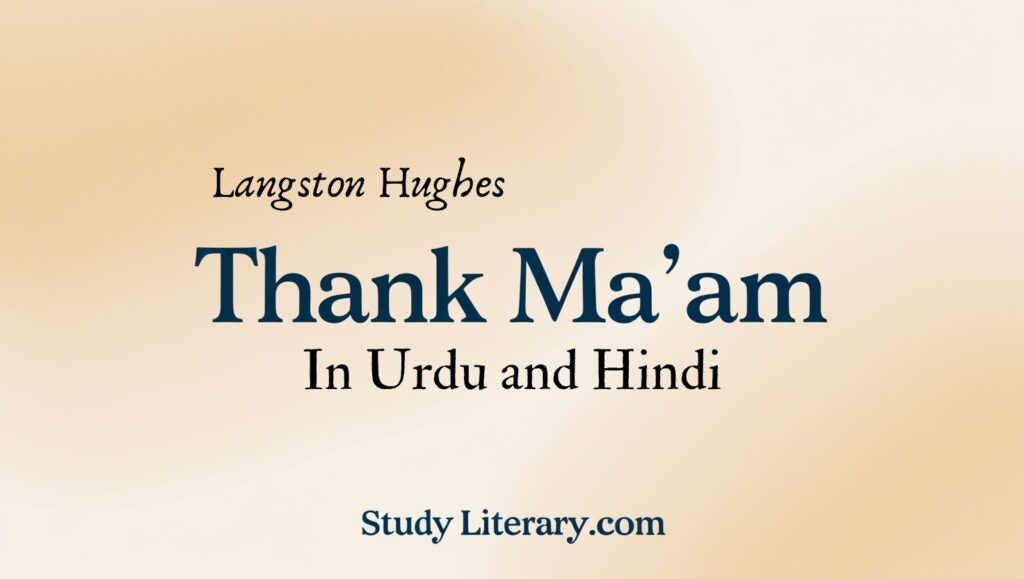
The Rising Sun Critical Analysis
Introduction
John Donne’s poem “The Sun Rising” is a classic example of metaphysical poetry, characterized by its witty conceits, bold imagery, and complex interplay between intellectual argument and emotional intensity. Written in the early 17th century, the poem personifies the sun and presents a defiant and playful conversation between the speaker and the sun. The speaker, who is in bed with his lover, challenges the sun’s authority and dismisses its influence over their world of love. Through its intricate structure, Donne’s distinctive use of conceits, and its blend of sensuality and intellectualism, “The Sun Rising” conveys a powerful and somewhat paradoxical assertion of love’s supremacy over time, space, and worldly concerns.
Structure and Form
“The Sun Rising” is composed of three stanzas, each containing ten lines. The rhyme scheme is consistent throughout, following ABBACDCDEE in each stanza. The meter is predominantly iambic, but Donne varies it with irregular line lengths and stresses, creating a rhythm that mirrors the conversational tone of the poem. This flexibility in meter allows the poem to capture the spontaneity of spoken language, giving the speaker’s arguments a sense of immediacy and energy.
The structure of the poem also reflects its thematic progression. Each stanza builds on the previous one, moving from the speaker’s initial irritation at the sun’s intrusion, to a more expansive meditation on the nature of love, and finally to a grand conclusion where the speaker boldly claims that his love is the center of the universe. The poem’s logical progression is characteristic of Donne’s metaphysical style, as he leads the reader through a series of intellectual arguments that ultimately culminate in a striking assertion of love’s transcendence.
The Speaker’s Rebellion Against the Sun
The poem opens with a direct address to the sun, which the speaker derides as a “busy old fool” for disturbing him and his lover:
“Busy old fool, unruly sun, / Why dost thou thus, / Through windows, and through curtains, call on us?”
The tone is playful yet defiant, as the speaker questions the sun’s authority to intrude on their intimate world. The sun, typically seen as a powerful force governing time and life on earth, is here belittled as a mere annoyance. The speaker challenges the sun’s power by asserting that love is independent of time:
“Love, all alike, no season knows nor clime, / Nor hours, days, months, which are the rags of time.”
This dismissal of time’s influence reflects the speaker’s belief that love transcends the physical limitations imposed by the sun and the passage of time. In this moment of intimacy, the lovers exist outside the normal boundaries of time and space, creating their own reality that is immune to the sun’s authority.
Use of Conceits and Metaphysical Wit
One of the hallmarks of metaphysical poetry is the use of conceits—extended metaphors that are intellectually striking and often involve surprising comparisons. In “The Sun Rising,” Donne employs several conceits that are both playful and profound. The most prominent conceit is the speaker’s claim that the entire world is contained within the room he shares with his lover:
“This bed thy center is, these walls, thy sphere.”
Here, the speaker inverts the traditional understanding of the sun as the center of the universe. Instead, he declares that the lovers are the true center of all things, and that the sun’s rightful place is to revolve around them. This conceit is audacious and grandiose, yet it effectively conveys the intensity of the speaker’s love, suggesting that their union is so complete that it encompasses the entire world.
Another conceit occurs when the speaker mockingly suggests that the sun’s job could be made easier if it simply focused on warming their room, since they are all that truly matters:
“Shine here to us, and thou art everywhere; / This bed thy center is, these walls, thy sphere.”
This conceit highlights the speaker’s sense of superiority over the sun, as he reduces its cosmic significance to serving the needs of their private world. The interplay between hyperbole and wit is characteristic of Donne’s metaphysical style, allowing the speaker to express the depth of his love in an intellectually engaging and entertaining manner.
The Celebration of Love’s Supremacy
As the poem progresses, the speaker’s initial irritation gives way to a triumphant celebration of love’s power. In the second stanza, he dismisses the importance of the outside world, mocking kings, princes, and wealth as insignificant compared to the love he shares with his partner:
“Princes do but play us; compared to this, / All honor’s mimic, all wealth alchemy.”
This line reveals the speaker’s conviction that worldly power and material wealth are mere imitations of the true riches found in love. The reference to “alchemy” emphasizes the idea that all other pursuits are illusory and futile when compared to the transformative power of love. In this way, the poem elevates love above all earthly concerns, suggesting that it is the only thing of real value in a world otherwise governed by transient and trivial pursuits.
The final stanza brings the poem to its climactic assertion:
“Thou, sun, art half as happy as we, / In that the world’s contracted thus; / Thine age asks ease, and since thy duties be / To warm the world, that’s done in warming us.”
Here, the speaker not only belittles the sun’s power but also claims that the sun can find fulfillment in serving them. The idea that the sun’s duty is fulfilled simply by warming the lovers’ bed reinforces the central conceit of the poem: that the lovers’ world is the only world that matters. In this moment, the speaker’s love is not just a personal experience but a cosmic force that redefines the very structure of the universe.
The Universal and Timeless Appeal of the Poem
While “The Sun Rising” is undoubtedly a personal expression of love, its message carries a universal appeal. The poem’s playful yet profound exploration of the idea that love transcends time, space, and worldly concerns speaks to readers across generations. The tension between the intellectual wit of the conceits and the passionate sincerity of the speaker’s declarations creates a unique blend of thought and feeling that is characteristic of Donne’s metaphysical poetry. Through his masterful use of language, Donne transforms a simple scene of two lovers in bed into a meditation on the nature of love and its ability to transcend the limitations of the physical world.
In “The Sun Rising,” Donne celebrates love as a force that redefines reality, elevating it above all other human pursuits. The sun, once seen as the ultimate authority over time and life, is reduced to a mere servant of the lovers’ private world. This subversion of traditional hierarchy is both humorous and profound, capturing the intensity of the speaker’s love while inviting the reader to consider the power of love in their own lives. By blending wit, passion, and intellectual rigor, Donne crafts a poem that is both deeply personal and universally resonant, ensuring its place as one of the most celebrated works in the metaphysical tradition.
Conclusion
In conclusion, “The Sun Rising” is a masterful expression of metaphysical poetry, combining clever conceits, dynamic structure, and a confident, exuberant tone. Through this poem, Donne reminds us that in the world of love, time, space, and even the sun itself become secondary to the intensity and completeness of the lovers’ union. It is this bold celebration of love’s supremacy that gives the poem its lasting appeal and makes it a timeless work of literary art.


